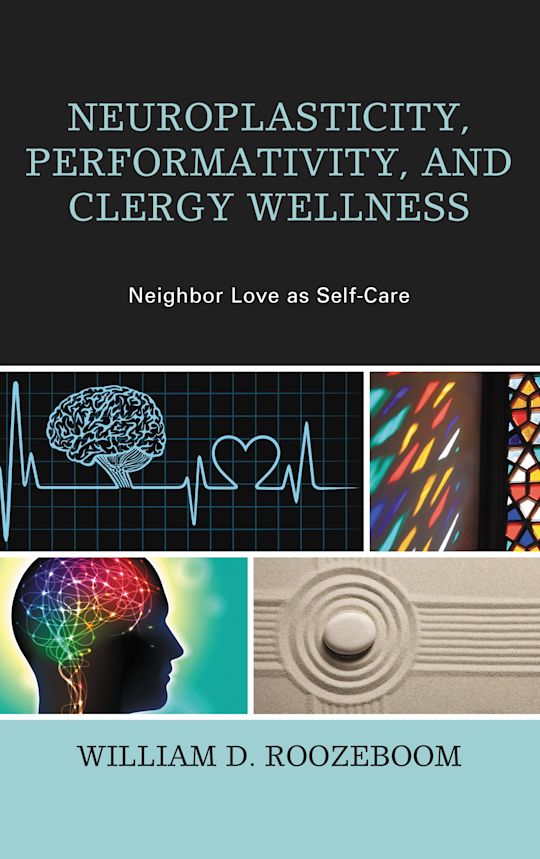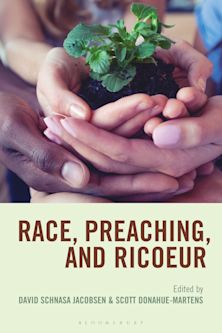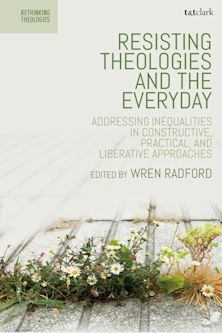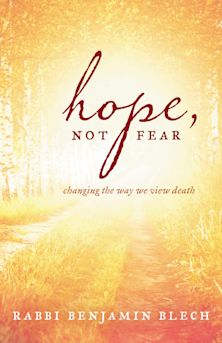- Home
- ACADEMIC
- Theology
- Theology and Society
- Neuroplasticity, Performativity, and Clergy Wellness
Neuroplasticity, Performativity, and Clergy Wellness
Neighbor Love as Self-Care
Neuroplasticity, Performativity, and Clergy Wellness
Neighbor Love as Self-Care
You must sign in to add this item to your wishlist. Please sign in or create an account
Description
This book invites readers, particularly clergy members, to rethink their understandings of the human person in light of recent developments in neuroscience. In addition to bringing together religion and neuroscience, it engages narrative theory, exercise physiology, and constructions of wellness to raise crucial questions about human identity and relationality and argue for a model of care that connects self-care and care for/with others. Furthermore, it claims that human beings are whole, intra/inter-relational, dynamic, plastic, and performative agents who have the capacity to story themselves neurophysiologically (in both “top-down” and “bottom-up” ways) through their regular practices of wellness.
Table of Contents
2. Deconstructing and Reconstructing Understandings of Self
3. A Working Theory of Wellness
4. Performativity And Plasticity: Storying Self Bi-Directionally In The Embodied Brain Ecosystem
5. Theoretical and Therapeutic Implications
6. A Theraputic Framework: A Case for Short-Term Clincial Skills in Spiritual Care and Counseling Contexts
Product details
| Published | 24 Dec 2016 |
|---|---|
| Format | Ebook (PDF) |
| Edition | 1st |
| Extent | 1 |
| ISBN | 9798881882556 |
| Imprint | Lexington Books |
| Illustrations | 1 b/w illustrations; 4 tables; |
| Series | Emerging Perspectives in Pastoral Theology and Care |
| Publisher | Bloomsbury Publishing |
About the contributors
Reviews
-
Roozeboom provides clergy, chaplains, and others engaged in pastoral care a window into the dramatic implications of neuroscience to help us better understand the embodied ecosystem within which the brain is highly responsive and intricately interrelated to spiritual, personal, and relational wellbeing. Roozeboom demonstrates the pivotal role for practices of self-care in this embodied ecosystem including not only renewing and supporting physical and spiritual well-being but also enhancing our capacities for the practice of neighbor love.
Nancy J. Ramsay, Brite Divinity School
-
Roozeboom offers a vibrant reminder to all of us concerned with the spiritual well-being of persons (and to those of us working at the intersection of pastoral theology and the neurosciences): what we do is as important to who we are as what we think and feel. Moving beyond the "top-down" models of contemplative practice, this text convincingly draws on neuroscience research to demonstrate that our physical and religious practices also "flow upward," reshaping our brains/minds/souls and relationships in profound ways.
David A. Hogue, Garrett-Evangelical Theological Seminary
-
In an age when we are being invited to revisit human identity and relationality and the contributions, especially of the sciences, to concepts of embodiment, Roozeboom’s book offers fresh hope for pastoral care by helping to derail the unsurmountable tendency left in the wake of dualistic anthropological models that have plagued Christian theology and its caring practices.
His thorough and easily accessible analysis of the science of how the inherent capacity of the “embodied brain ecosystem” constructs and continually works towards wholeness as humans engage in practices of wellness by which they induce the neuroplasticity of the brain allows for caring for others while caring for the self and doing both with integrity. This is no small feat as recent accounts of clergy burnout demonstrate.
However, Roozeboom has offered a candid appraisal of the terrain and shone light on the fault lines, largely in our anthropology, and helps us navigate this fascinating yet difficult arena in human health and wholeness, by returning us to the primitive body and how daily practices of wellness as we love and care for the body, without the oft essentializing and objectifying that accompanies self-care rhetoric, facilitate pastoral care encounters. This is pastoral care as self-care simplified and doable.Esther E. Acolatse, Duke University Divinity School
-
William D. Roozeboom’s text, Neuroplasticity, Performativity, and Clergy Wellness: Neighbor Love as Self Care, creatively expands not only the fields of pastoral and practical theology but also the ever-unfolding field of neuroscience. Roozeboom approaches neuroscience through the lens of a critically-trained practical theologian. . . .
Journal of Pastoral Theology

ONLINE RESOURCES
Bloomsbury Collections
This book is available on Bloomsbury Collections where your library has access.



































